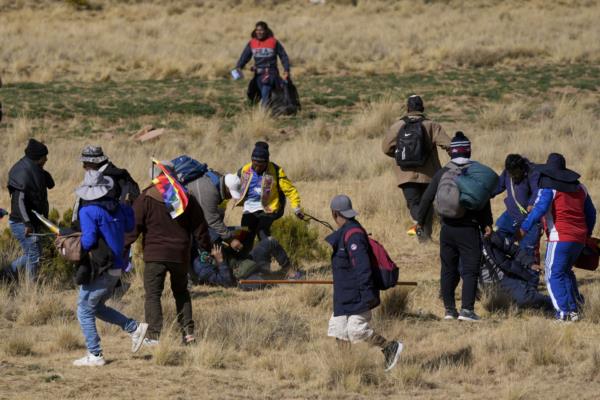
Thousands of anti-government demonstrators marched in support of Bolivia’s former President Evo Morales on Tuesday, leading to clashes with counterprotesters in a stark sign of an escalating power struggle in the volatile Andean nation.
Morales mobilized a “March to Save Bolivia,” a 190-kilometer trek denouncing the government of his protege-turned-rival, current President Luis Arce. Despite resigning in 2019 amid mass protests, Morales retains significant support among poor and Indigenous Bolivians.
The peaceful march turned violent as counterprotesters armed with tear gas bombs, stones, and firecrackers confronted the nearly 10,000 Morales supporters. Scuffles ensued, resulting in injuries to 13 individuals, including three police officers.
Accusations flew from both sides, with Arce's government labeling Morales' actions as an attempted coup, while Morales accused the government of undermining human rights and laws in Bolivia.















The rift deepened as Morales seeks to run against Arce in the next presidential election, despite a court ruling disqualifying him. Protesters demanded Morales be allowed on the 2025 ballot, emphasizing their discontent with the current economic crisis and recalling Morales' tenure for economic growth and social uplift.
The political feud between Morales and Arce threatens to take Bolivia into a new phase of turmoil, with the governing party, MAS, facing internal divisions. The ongoing power struggle has exacerbated an economic crisis in Bolivia, with protesters expressing dissatisfaction with the current government's governance.
As tensions rise and political rivalries intensify, Bolivia finds itself at a critical juncture, with the future political landscape hanging in the balance.







